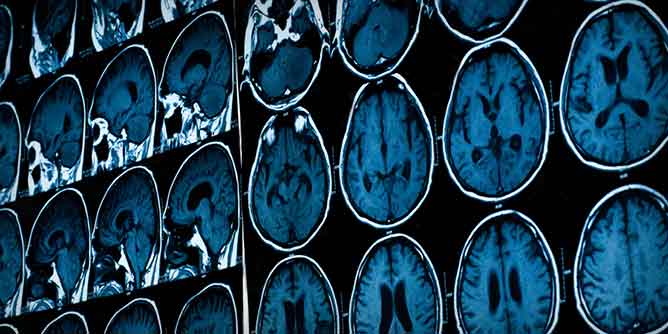This is Your Brain on Sex

It doesn't take a rocket scientist to guess that there are some pretty wacky things that happen in your brain when you orgasm, but you probably weren't aware that there was any truth serum hidden in that O. A recent study may give all you compulsive liars cause for concern.
Oxytocin - the bonding chemical your brain releases when you orgasm - and often referred to as the "cuddle hormone", doesn't just facilitate a sense of closeness. Researchers have found it also makes you likely to share your deep secrets, or at least communicate better with your partner.
The study highlighted the ability of oxytocin to increase feelings of intimacy and trust, as well as lower stress levels. "Post-coital communication is likely linked to sexual and relationship satisfaction," said lead author of the study Amanda Denes. "For this reason, pillow talk may play a pivotal role in maintaining intimacy."
But the study found when alcohol is involved the communication becomes less positive in nature. People who drank were more likely to say things to their partners they hadn't meant to share, though the conversations could often be fairly trivial in nature. Additionally people who consumed more alcohol perceived fewer benefits about sharing information with their partners.
Of course, oxytocin is but one small part of the larger picture. A recent article in Vox compiled some findings from Rutgers neuroscientist Barry Komisaruk and retired sex researcher Beverly Whipple, who conducted tests using fMRI machines to get a clear view of what's happening in the brain during an orgasm.
For one, there is no "orgasm centre" - more than 30 major areas within the brain are activated. Basically, orgasms seem to take over the brain, affecting areas aside from those related to our sense of touch. Other than the areas you'd expect to such as emotions and memory, areas of the brain involved in judgement, problem solving were also stimulated. Whilst there was decreased activity in areas which control fear and impulse control.
Earlier studies by Komisaruk & Whipple also found that orgasms and sexual stimulation can increase pain tolerance by up to 50%. Pain is basically a mechanism to protect our bodies and kinksters understand that the rush of endorphins which pump into your brain during a play session reduce your sensitivity to pain. Given that many kinksters also experience sexual arousal or even orgasm this finding supports why some exhibit a much higher pain threshold during play than they would in their day to day lives. The scans showed activity in the brain region associated with pain but it's thought the neurons were firing to block the perception of pain rather than transmit it.
Amazingly some of the women who participated were able to bring themselves to orgasm using their thoughts alone. And the fMRI showed that the women who could think themselves to orgasm displayed heightened activity in the sensory cortex, the area that primarily responds to touch. This might be a good time to re-read our Dirty Talk article for some hints on stimulating your partner's brain, not just their genitals.


Likes & Comments
Comments (1)
serg685